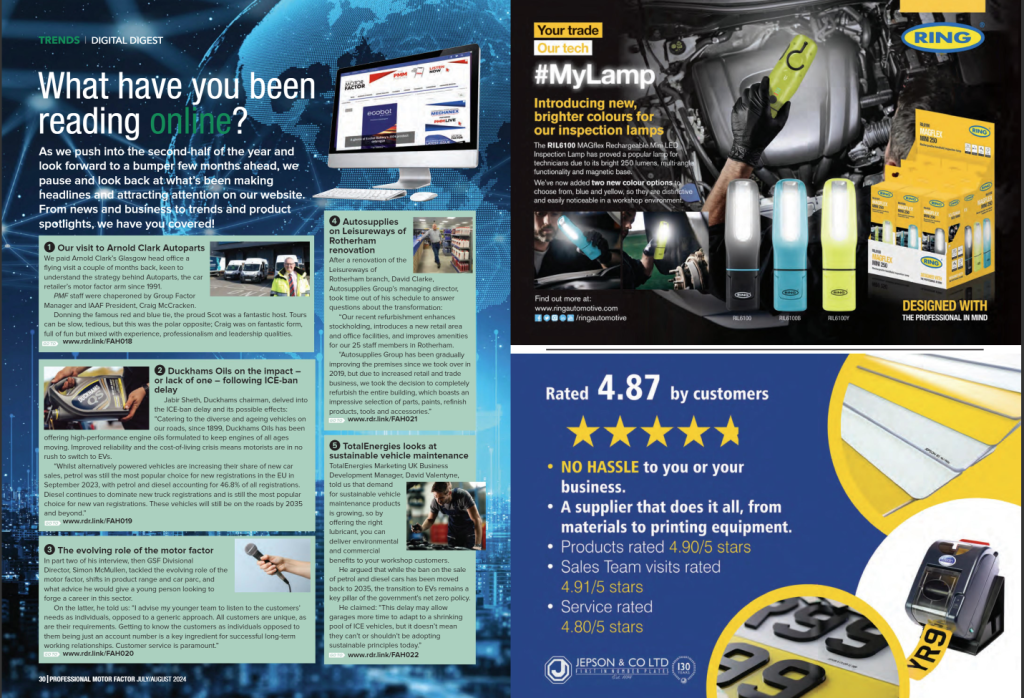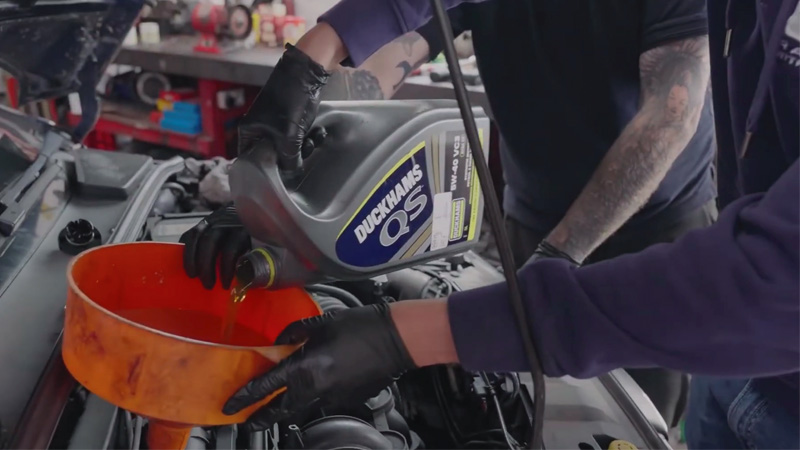FUELS, LUBRICANTS & ADDITIVES
FUELS, LUBRICANTS & ADDITIVES
QUALITY COUNTS
CVW spoke to Chris Clarkson, global technical and procurement officer at Duckhams, about why product quality really matters when it comes to engine oil.
There’s a saying that if something sounds too good to be true, it probably is, and it could certainly be applied to the complex, changing world of engine oil. With rapid increases in the costs of labour, parts, fuel and insurance, commercial vehicle operators and workshops are looking to make cost savings where they can. But I would urge caution when it comes to engine oil. The cost of the oil itself is nothing compared to the cost of downtime if vehicles are off the road.
Using a poor quality oil probably won’t result in obvious damage from day one. However, over time, it can cause increased wear to critical parts of the engine. These parts will break down quicker, and fuel efficiency will be compromised. All this creates knock-on costs for commercial vehicles – costs that can be avoided if the owner uses the correct, quality engine oil.
Engineered solutions
Engine oils are not just commodity products. They are highly engineered solutions that play a vital role in achieving fuel efficiency and emissions regulation targets, making them a key component in vehicle performance and longevity.
Poorer quality, cheaper engine oil will likely be made from Group I or mineral-based base oil from unreliable sources or emerging markets. The additives are unlikely to have been through full development or testing.
By contrast, premium-quality engine oil is made from high-quality materials in a formula proven through multi-million-pound testing. The base oil is likely to be a more refined Group 2 or Group 3 oil, which gives better stability and thermal oxidation properties. This ensures the lubricant performs well over the lifetime of the oil drain interval, particularly for important commercial vehicles.
“Is it actually approved by an OEM, or just ‘suitable for use’ or ‘meets the requirements of’?”
Engine oil has seen a proliferation of brands, with new products popping up all the time. While they may be cheaper in the short term, they are unlikely to reduce the cost of ownership in the long term. Well-known, trusted brands have been around for decades, developing products to adhere to the changing needs of the vehicle parc and investing in OEM approvals to confirm their claims.
If a product sounds too good to be true, don’t be afraid to challenge and check. Ask the supplier to provide technical data sheets to confirm that the product has the correct approvals. Look closely at the language they use. Is it actually approved by an OEM, or just ‘suitable for use’ or ‘meets the requirements of’? There’s a big difference. If you have an official approval, a manufacturer has proven that a product is suitable for the application. The product will have gone through hours of testing at a significant cost.
Go online and check if the brand has registered with European lubricants organisations ATIEL and SAIL-Europe. Any lubricant marker claiming any ACEA performance standards must be a signatory of the European Engine Lubricant Quality Management System (EELQMS) for their claims. Internationally, even if they are based in the UK and only sell products in the UK. This can be checked simply and easily at
https://www.sail-europe.eu/registartions/lubricant-marketers
https://www.sail-europe.eu/registartions/lubricant-marketers
You can also contact the OEM or VLS, the Verification of Lubricant Specifications. This independent organisation investigates complaints about engine oils and other lubricants. I have volunteered on the VLS Technical Review Panel for the past three years and have seen first-hand some of the problems when suppliers push the boundaries. It seems to be a growing trend. With margins under pressure, it’s tempting to look for cheaper formulations. However, workshops must be confident that formulations are proven, products can deliver what they claim and are safe to use for a vehicle’s lifetime. You can find a list of VLS members on their website: [https://vls-uk.org.uk](https://vls-uk.org.uk) as well as find out about products that have recently been investigated.
Recourses By Commercial Vehicle Workshop


 Belgium
Belgium Denmark
Denmark Germany
Germany Greece
Greece Ireland
Ireland Luxembourg
Luxembourg Malta
Malta Netherlands
Netherlands Norway
Norway Poland
Poland Romania
Romania Russia
Russia Sweden
Sweden United Kingdom
United Kingdom Afghanistan
Afghanistan Jordan
Jordan Kuwait
Kuwait Lebanon
Lebanon Nepal
Nepal Pakistan
Pakistan UAE
UAE Malaysia
Malaysia Myanmar
Myanmar Singapore
Singapore Taiwan
Taiwan Thailand
Thailand Vietnam
Vietnam




